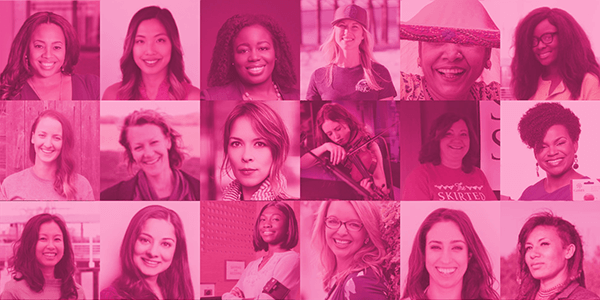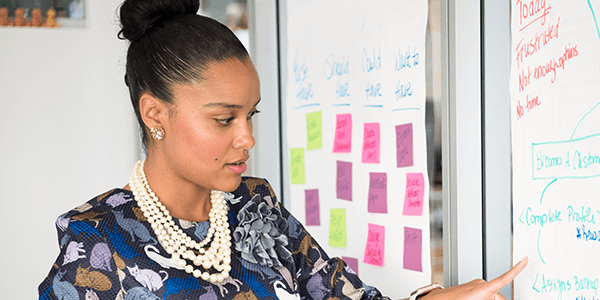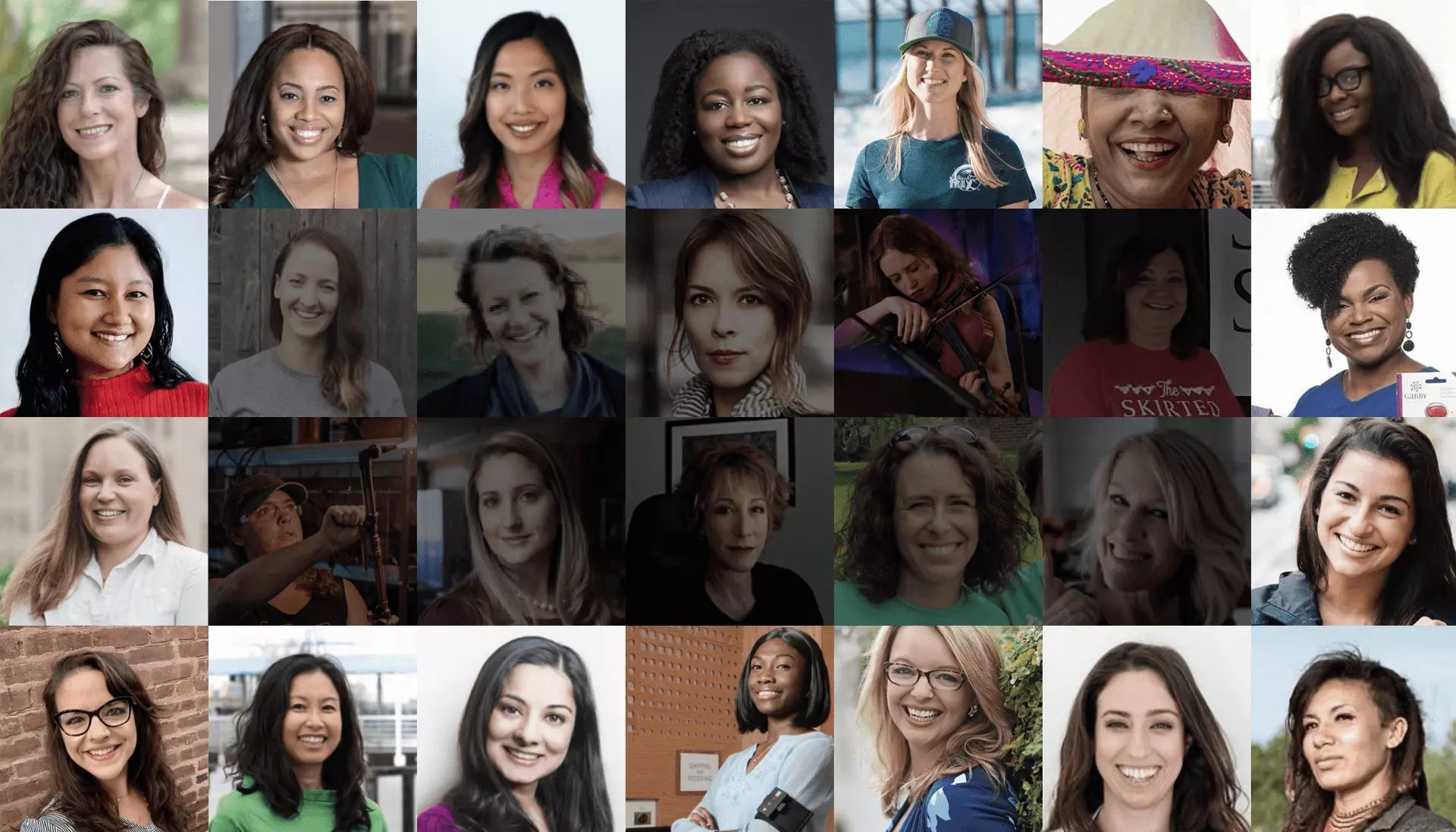

October 20, 2025
September 2025 Amber Grant Awarded to Blue Cowgirl Productions

Blue Cowgirl Productions
Woman Entrepreneur:
Tori McCarthy & Anya Swanson
Her Website:
https://bluecowgirlproductions.com
Video Transcript
Marcia: Welcome to a chat today with filmmakers Tori McCarthy and Anya Swanson of Blue Cowgirl Productions, the winners of this month’s Amber Grant. The Amber Grant is open to all women business owners in the U.S. and Canada. I’m Marcia Layton Turner, one of several advisory board members, and every other month, I get the chance to learn about all our fantastic winners. So, thank you all so much for giving me your time.
Would you two share a little bit about your company, maybe where the idea came from, and how it’s been going so far.
Tori: Absolutely. So, myself and Anya actually met during our graduate program at the University of Texas (UT) Austin in film and radio TV production. So, we became colleagues at that time. We collaborated on some of our student films through that program and things like that and became very close friends. And in this couple handful of years since we’ve finished that graduate program, we were freelancing and, kind of, hustling and grinding. And we’re in Austin, Texas, which is a medium film market. Also, film is typically a pretty male-dominated industry. So, we sort of came together with all our dreams and some frustrations and said, “How can we make this work for us?” And the idea really… I’ll give Anya so much credit. She has a pilot script that she’s written and we sort of just decided, “Let’s start making stuff. Let’s start making our big dreams happen.” And the company, kind of, evolved as the vessel for that, for our partnership.
Anya: Yeah, and just to piggyback off of that… That was very lovely, Tori. Yeah. You know, Tori and I met when we were both grad students, already just creatively collaborating a lot. We just instantly clicked when we met. And all the projects that we worked on, it only felt natural that, “Hey, let’s just keep doing this post-grad. Let’s start a company. Let’s bring our stories to life.” It was just natural that we wanted to keep working together and us coming together as a business just really set us forth in this whole professional film industry that we’re in. Do we want to talk about the origins of Blue Cowgirl and where that came from?
Tori: We can quickly touch on it. I definitely want to be mindful of everyone. But as we were forming the company, I was on this crazy house hunting endeavor. And during that, we found a very cute little house that had this mural of this crying cowgirl, and we sort of started chatting about it, the Blue Cowgirl, and it just sort of stuck and clicked. Naming things is so hard. So, when you hit the needle on the head, you just got to take it, I guess.
Anya: Yeah, the quote was like, “Even cowgirls get the blues sometimes.” I think it was around that. And so Blue Cowgirl really came from this idea of this messy kind of girl. She’s not perfect. She feels everything. She both feminine and masculine. She’s everything. She is a bit of messy and that’s okay. And that’s kind of really embodying of who Tori and I are and the kind of stories we want to tell.
Marcia: Fantastic. And actually, female partnerships are unusual, based on some of the stats that I’ve seen; women tend to want to go it alone. So, kudos to both of you for seeing that you could be stronger together. That’s great.
Let’s talk a little bit about any resources that you found that were helpful in moving your business forward. Are there any you would recommend?
Tori: Yeah, absolutely. I can definitely say for us a huge thing has been just our local network here in Austin. Obviously, coming through the UT system and going to the university, we’ve had such a privilege of having incredible advisors and professors who are out there doing the kind of professional work that we’re interested in, and maybe they’re 10 or 20 years a little further down the line. So, just maintaining those relationships and keeping those communications really open and authentic has been incredibly helpful.
And then also leveraging just the fact that Austin is a beautiful, artistic community. So, certainly, community-type events like South by Southwest. We made a major networking sort of push during that. Additionally, there’s the Women in Film and TV network here locally in Austin that we are participants in. So, really just getting out there, meeting as many people in the same field as us and also broadening out because obviously for our creative services, we love to connect with people who are doing interesting and different things that we can help, kind of, showcase as well. So, the local community has been just incredible.
Anya: For sure. And I’ll just piggyback, just looking back on who our network was as freelancers, they want to see us succeed as a business partnership now. So, not just ignoring what our past has been but really leaning into that community that’s been supportive of us as individual filmmakers and now as business partners too.
Marcia: Excellent. I know Austin is a hot spot for entrepreneurial activity right now, so you’re in a good place.
Now, marketing can be so critical for success. Were there any particular marketing strategies or tactics that you’ve used that you found have worked really well for your business?
Tori: Yeah, absolutely. So, one of the first things we did as we sort of launched, and my background actually comes from the ad agency world, and I was formerly a creative director before I went to the graduate program. So, the first thing we did was a kind of 360-degree branding campaign. So, we had our logo developed, which I know we’re both deeply in love with. We had our website built out, which we hope to bulk up with some more of our portfolio-type work as we continue to grow. We’ve really leveraged a lot of our very diverse past work, which is advice I would give to all creatives out there, not to feel tentative about showing off the work that you had done previously to launching your business because it’s still your work and representative of your capabilities.
We’ve put a lot of effort into speaking of capabilities, building out capability decks that are very specific to the different quadrants or genres of work that we can do. We kind of have very complementary skill sets. Anya has a sporting background. We both have documentary backgrounds. As I mentioned, I come from an advertising world. We’re kind of casting a broad net because we love to tell all different kinds of stories.
I would also say it’s been a major differentiator that I’m very, very happy and proud of. In Austin, we really are probably the only fully women-led production company. It is typically a boys’ club, and being a boutique kind of production company as well. We want to be very accessible to creatives and filmmakers and small business owners and other folks like that here in Austin.
I think the fact that we’re a team of semi-identifying people has really opened up a lot of paths for us in terms of the type of content that we’re being invited to create, whether that’s healthcare content or LGBTQIA+ content. I think there is an appeal for folks of working with us as women filmmakers in particular.
Anya: I would just add on to that and that was brilliantly said, Tori. Again, relying on that word of mouth. As freelancers in film, it very much is word of mouth and reputation. And we’ve worked with some incredible people. They’ve loved working with us. So, as we transition into starting a business, we just did the same thing of like, “Hey, you know how I was freelancing, editing for you? Now I’ve got a business partnership with Tori who’s done incredible cinematography work. Come hire us as a full package for you. And just, you know, letting people know in our community, in our network, they want to know this. So, that’s been really, really helpful. And again, relying on that UT community as well with our professors and previous faculty that we’ve had giving us all this guidance
Tori: As our colleagues through the grad program and folks that now are trusted vendors for us, that we can call up and say, “Hey, we need a photographer on this day. Things like that.” It does tend to spread in that sort of way. So, relationship building is so key.
Marcia: I completely agree. So, let’s wrap up with one quick question about one thing that our WomensNet community can do to show support for your business What would that be?
Tori: Definitely check out our website, bluecowgirlproductions.com. Our reel is there, a little bit of our backstory, and a little bit of our values and point of view as artists and business people. You can also follow us on our Instagram, which is fairly fresh, but we’re looking forward to having a major social media campaign push coming out. That’s @bluecowgirlprods.
And then the other thing is we’re just really looking to connect with other business owners that we can kind of have a symbiotic, collaborative relationship with. So, for folks looking for photo, video content, or anything in between, we would love to continue to grow our network of folks that have shared values, and we can help highlight the great work they’re doing as well.
Marcia: Amazing. Well, thank you so much for sharing your stories with us, and congratulations again on being our September grant winners.

















